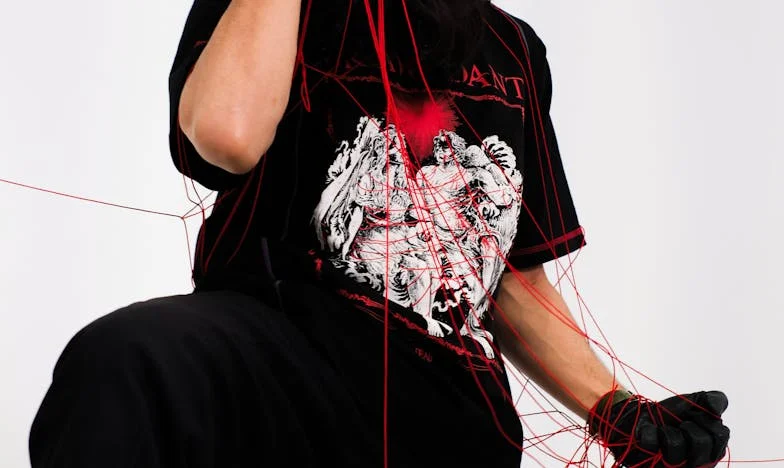The Day I Found Out I Had a Daughter
“She’s your daughter, Andrew.”
Those words hit me like a punch to the chest. My hands trembled as I held the letter, the ink smudged from the rain and my own sweaty grip. I looked up at the social worker standing on my porch, a little girl with tangled brown hair peeking out from behind her. Rainwater dripped from their coats. My wife, Lisa, stood frozen in the doorway, her eyes locked on the girl, suspicion and fear warring on her face.
“Who are you?” Lisa’s voice was barely a whisper, but I could hear the panic rising.
The social worker’s smile was tight. “I’m Emily Carter, from Child Protective Services. Mr. Parker, this is Olivia.”
I stared at the girl. She was maybe seven, her cheeks flushed, clutching a battered stuffed bunny. My heart pounded so loudly I thought everyone could hear it.
“There must be some mistake,” I stammered. “I don’t have a daughter.”
Emily shook her head. “Her mother, Jessica Dalton, named you as her father before she passed away last week. We found a paternity test in her files. You’re listed as Olivia’s next of kin.”
Lisa’s hand shot out, gripping my arm. “Andy, what the hell is she talking about?”
I looked into Lisa’s eyes, searching for the man I thought I was. The truth was, I did remember Jessica—an old college flame, a summer of mistakes. I never thought there’d be consequences. My mind reeled: a child, a secret life, and now, a little girl who needed me.
Emily cleared her throat. “We need to find Olivia a home. If you can’t take her, she’ll enter foster care.”
I glanced at Lisa, who shook her head, tears pooling in her eyes. “This is insane. This is not our problem!”
But as Olivia’s eyes met mine—so familiar, so scared—I knew I couldn’t let her go. “She’s my daughter,” I said quietly. “I’m not letting her go into the system.”
The door shut behind us with a thud. Lisa stood in the kitchen, arms crossed, staring at the fridge but not seeing it. Olivia sat silently on the couch, legs swinging, as I fumbled through the pantry for something for her to eat. That first night, the house was silent except for the sound of Olivia’s soft sobs and the storm raging outside.
Lisa didn’t speak to me for two days. When she finally did, her words cut deeper than I thought possible.
“You lied to me. You brought this into our home. How am I supposed to forgive you for this?”
“I didn’t know,” I pleaded. “Lisa, I swear. She just showed up—”
“But she’s here, isn’t she? And now everything is different.”
We fought every night. About Olivia, about the past, about what kind of man I was—what kind of father I could possibly be. I took Olivia to school, learned to braid her hair (badly), read her bedtime stories while Lisa slept on the couch. The house felt split in two: Lisa’s grief and anger on one side, Olivia and me on the other, trying to build something like a family from the debris.
I tried to help Olivia adjust. There were nightmares—hers and mine. She’d wake up crying for her mother. I’d sit on the edge of her bed, stroking her hair, promising her she was safe now. But sometimes, when Lisa slammed a door or I caught her packing a bag, I wanted to run too. I wasn’t ready for this. I wasn’t the father Olivia deserved. I wasn’t the husband Lisa needed anymore.
One night, Lisa stood in the doorway of Olivia’s room, watching as I tucked her in.
“You love her already, don’t you?” Lisa’s voice was raw.
I swallowed hard. “She’s my daughter. I have to try.”
She wiped her eyes. “I can’t do this, Andy. I’m sorry. I can’t live with this lie, with this pain.”
“It’s not a lie,” I whispered. “It’s a mistake from a lifetime ago. But she’s innocent.”
Lisa moved out two days later. She left her wedding ring on the kitchen table, a silent accusation. The house felt emptier than before, but Olivia’s laughter slowly started to fill the rooms. She drew pictures for me, told me about her dreams. Sometimes, I saw flashes of Jessica in her smile, but she was also mine—the same dimple on her left cheek, the same stubborn set to her jaw.
I went to therapy, fought for joint custody when Lisa filed for divorce, and learned to be a dad on the fly. My friends stopped calling, not knowing what to say. My parents were shocked, but they showed up with casseroles and awkward hugs. I learned to let go of the life I thought I wanted, and to accept the life I’d been given.
It wasn’t easy. There were days I wanted to give up, to call Emily and tell her I couldn’t do it. But then Olivia would crawl into my lap with her bunny and whisper, “I love you, Daddy,” and I’d know: this was my second chance. Maybe it cost me everything I thought I loved, but it gave me something I never knew I needed.
Now, late at night, when the house is quiet and Olivia sleeps down the hall, I wonder: Do we ever really know ourselves, or do we become who we are when life throws us into the fire? If you were in my shoes, would you have chosen differently?
